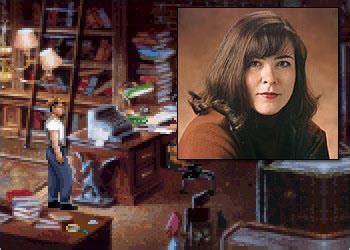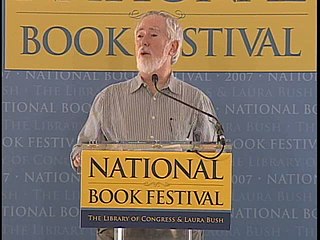A Quote by Carlos Ruiz Zafon
My childhood was surrounded by books and writing. From a very early age I was fascinated by storytelling, by the printed word, by language, by ideas. So I would seek them out.
Related Quotes
The heroic books, even if printed in the character of our mother tongue, will always be in a language dead to degenerate times; and we must laboriously seek the meaning of each word and line, conjecturing a larger sense than common use permits out of what wisdom and valor and generosity we have. The modern cheap and fertile press, with all its translations, has done little to bring us nearer to the heroic writers of antiquity. They seem as solitary, and the letter in which they are printed as rare and curious, as ever.
We sift reality through screens composed of ideas . (And such ideas have their roots in older ideas.) Such idea systems are necessarily limited by language , by the ways we can describe them. That is to say: language cuts the grooves in which our thoughts move. If we seek new validity forms (other laws and other orders) we must step outside language.
It's not a problem to be surrounded by other writers if that's the craft that you're doing. I suppose if you get obsessed with the notion of being a writer more than the writing itself, that would be bad. But I live near really smart, thoughtful people who take writing very seriously, and I can meet them for breakfast and talk books.
One of the many things I love about bound books is their sheer physicality. Electronic books live out of sight and out of mind. But printed books have body, presence. Sure, sometimes they'll elude you by hiding in improbable places... But at other times they'll confront you, and you'll literally stumble over some tomes you hadn't thought about in weeks or years. I often seek electronic books, but they never come after me. They may make me feel, but I can't feel them. They are all soul with no flesh, no texture, and no weight. They can get in your head but can't whack you upside it.
If you do a little bit of looking at books with your children and inspire them to be curious about the pictures and ... what the word means, but don't get into very structured systematic teaching at too early an age, and you also interact emotionally and have fun with pretend play ... then you have the best of both worlds.
I went to a seminar early in my career on the craft of storytelling by Robert McKee. It was really life altering. There are basic principles on how to craft an engaging story and he covers them well. He's got a book out, 'Story,' that I would highly recommend to anyone interested in improve their storytelling.
I discovered that I, a writer of what is known as creative nonfiction, could do the research and bridge the gap in my books and lectures through true storytelling. This is not 'dumbing down' or writing for eighth graders. It is writing for readers across cultures, age barriers, social and political landscapes.







































